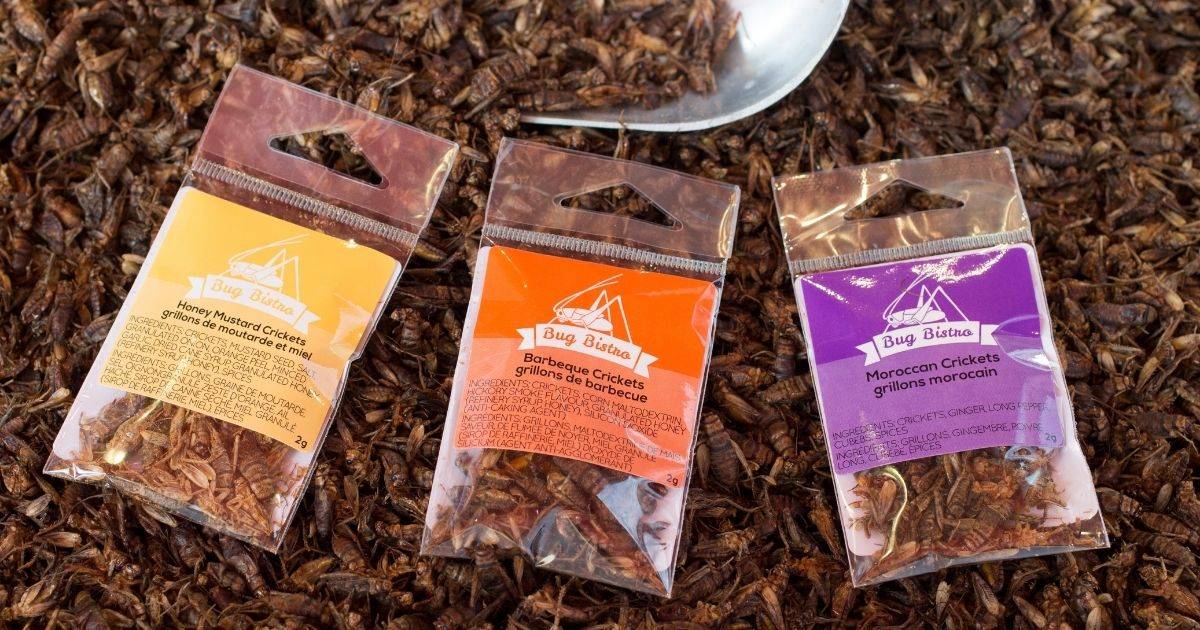The world is changing, and that includes our food. Climate change, pressure on our resources, and growing consumer awareness are forcing producers to innovate, prioritizing wellness, sustainability and ethical practices along the way.
From rethinking kitchen staples and ingredients to fresh approaches to supply and demand, here are some of the Canadian companies and organizations leading the way.
Balzac’s Coffee Roasters
Female-led coffee company Balzac’s Coffee Roasters was the vision of president and founder Diana Olsen, who spent 18 months in France after graduating and was inspired by the celebration and tradition of coffee there. She wanted to bring the same experience home to Canada, and in 1993 she travelled to San Francisco to learn the craft of coffee roasting and bean selection at the West Coast Specialty Coffee Training Institute. In 1996, the first Balzac’s café opened, in Stratford, Ontario. There are now 14 locations across the province.
Continuously committed to reducing its environmental impact, Balzac’s roasts beans using an eco-friendly roaster that reduces energy consumption and greenhouse gas emissions by up to 80 percent. “Local,” “natural,” “sustainable” and “artisanal” are the four cornerstones of the company’s business practices, and as such Balzac’s uses 100 percent organic and local dairy products; fair trade organic cocoa, sugar and espresso coffee; and organic local juices, apple cider and maple syrup. Chosen tea brand Kusmi Tea uses biodegradable tea bags made of natural corn fibre. Guests can also bring their own reusable cup and receive 25 cents off their beverage price. Balzac’s is a certified green restaurant and was the first coffee company in Canada to gain LEAF (Leaders in Environmentally Accountable Foodservice) certification. balzacs.com
Chapman’s Ice Cream
Chapman’s Ice Cream has been a tasty Canadian institution for almost 50 years. Established in 1973 by David and Penny Chapman, the company started out with four employees and two old trucks when the couple moved into the rooms above the old creamery in Markdale, Ontario, and began their family-run business. The business has since grown into Canada’s largest independent ice cream company, producing more than 280 lines of frozen treats. Chapman’s is committed to using sustainable methods and works hard to continuously improve its technology to minimize its environmental impact, such as building a high-tech waste-water treatment plant to purify the 800,000 litres of water used daily, and adding a reverse-osmosis system so the water can be purified and reused in its rooftop containers. Other sustainable efforts include eco-friendly packaging, sustainable wooden sticks for a variety of ice cream novelties, sustainable palm oil and energy conservation. Today, the family business is still run by David and Penny, along with son Ashley.
chapmans.ca
CSA Farms
CSA stands for “community-supported agriculture,“ an organized process involving the distribution and growth of organic produce. Not only are CSAs a great way to support your local farmers by purchasing a share of the harvest at the beginning of the growing season, but they’re also a means of encouraging farm-to-table eating in your home and community.
CSA Farms was founded on the belief that education around locally harvested produce can change the world. To that end, CSA Farms connects farmers with the community at large—essentially, it’s a farm share. Every spring, residents can subscribe to a local organic farm for a “share” of the year’s harvest. CSA members are then supplied with baskets of prewashed, freshly harvested vegetables. Subscribers are also able to pick up their baskets from recommended partners.
CSA Farms has a holistic approach when it comes to supporting the community. Every quarter, the company hosts an event where farmers, partners and customers can exchange information about how to buy, sell and trade their products. It also partners with professionals from all over the country to host free workshops and seminars, sharing knowledge and resources with the community. csafarms.ca
Dainty Rice
Dainty, a proudly Canadian rice company, has been sourcing rice from around the globe for over 135 years. Founded as Mount Royal Rice Mills in Montreal in 1882, Dainty eventually moved to Windsor, Ontario, in 1967. It remains Canada’s only rice mill.
In 2018, Dainty products became non-GMO certified. While rice is naturally gluten-free, the Dainty mill is a certified gluten-free facility, without risk of cross-contamination. The Dainty organic range is an unprocessed, natural product available in brown and wild rice blends in 100 percent recyclable packaging. cookrice.ca
Eatmore Sprouts and Greens
Eatmore Sprouts and Greens is a family-run business in Comox Valley, British Columbia. Owned and operated by Carmen and Glenn Wakeling, the company produces certified organic, GMO-free sprouts and greens. The couple value sustainability and run their business in a way that is financially viable, socially responsible and environmentally sustainable, from the state-of-the-art energy system that includes 48 solar panels (providing solar energy) to the wood gasification boiler, a system that burns almost all of its own gases and is considered carbon neutral. Eatmore also supplements its solar power with electricity bought from a company that feeds the grid with wind-powered hydro (Bullfrog green electricity). Grounded in sustainable agriculture practices on their certified organic farm, the couple are committed to supporting the community in understanding current challenges in food production—and potential solutions—by providing information on their website and blog, as well as supporting local food producers and organizations in the Comox Valley and all of Western Canada. eatmoresprouts.com

Alfalfa on Racks 
Mixed Bean in Cambro 
Packaging mixed beans 

Pea shoots at different stages of growth 
Seed Starting 
Deli on Rack
Eggcitables
Eggcitables was developed by founder Hannah Chisholm out of necessity. Allergic to milk, egg and nuts, she was inspired to find an alternative to eggs.
After years of research and development, Eggcitables was born. A plant-based egg alternative, it is made with a blend of chickpeas, gluten-free oat flour and carrot flour. It is also certified vegan and free from the top eight most common allergens, including gluten.
As an advocate for sustainable living, Chisholm had a vision to create a company that fosters innovative, sustainable solutions to dietary restrictions. The result is a soy-free, nut-free, completely vegan alternative to eggs, with 97 percent of the ingredients sourced from Canadian suppliers—70 percent come directly from Canadian farmers. Eggcitables can be used in all recipes that require eggs, by simply adding water to the powder alternative.
Eggcitables is made at the Dartmouth Adult Services Centre in Dartmouth, Nova Scotia, which employs adults with intellectual disabilities, helping them realize their true potential and become active members of the community. eggcitables.com
Entomo Farms
Entomo Farms was founded by brothers Darren, Ryan and Jarrod Goldin, in Norwood, Ontario. Originally from South Africa, the brothers have a love of the environment, stemming from their father, Alan, and mother, Loraine, who set them on a path of global awareness.
It was this passion that inspired Entomo Farms, which produces insect protein as a viable response to the demand on food, water and natural resources. According to Entomo’s website, over 2 billion people eat insect protein every day as part of their daily diet. Insects are rich in protein, full of iron, low in fat and calories, and have a long shelf life. They are also less taxing on agricultural and freshwater resources and use fewer greenhouse gases to produce than livestock. The Entomo team is committed to treating its crickets as humanely as possible: The free-range crickets are harvested at the end of their life cycle, at about 6 weeks.
Entomo Farms products include roasted whole cricket and mealworms, which are also available in protein powders. Cricket powder can be used in soups, salad dressings, desserts, smoothies and any other favourite foods. entomofarms.com
Lau-tea-da Lentils
Grown sustainably on a family farm just outside Elora, Ontario, Lau-tea-da Lentils is a true family affair, where owners and farmers Laura Ferrier, husband James, and Laura’s parents, Keith and Linda Austin, juggle farm duties, full-time careers and children. The family has been in farming for more than 150 years, growing corn, soybeans, wheat, hay and now green lentils.
Lentils are typically grown in the Prairie provinces, but in 2016 Lau-tea-da Lentils grew its first crop. Part of the legume family, lentils have a lower carbon footprint than almost any other food group, are water efficient and enrich the soil where they grow. The family prides themselves on the fact that their crops are grown sustainably to leave the land better than they found it.
facebook.com/ontariolentils
Rise Kombucha
Kombucha is a healthy, refreshing drink made up of four ingredients: tea, water, natural flavours and SCOBY (symbiotic culture of bacteria and yeast). The SCOBY (also known as “mother” or “kombucha culture“) metabolizes the organic sugar and caffeine in the tea (the fermentation stage), so you don’t have to. The result is a drink with organic acids and microorganisms that has a good impact on the body. A natural fermented beverage, kombucha is said to help with gut health and strengthen the immune system while offering a healthier and tastier alternative to sweet beverages.
Based in Montreal, Rise Kombucha evolved from a chance meeting of old friends. World travellers Mathieu Gallant and David Côté met on the sandy beaches of Hawaii. Their mutual interest in the islands’ raw food and drink scene soon sparked an idea for a unique, ecologically sound and socially conscious kombucha.
The partners teamed up with friend Simon Bertrand, brewers and scientists to develop the SCOBY they brought back from Hawaii into a locally produced, organic and vegan kombucha infused with ingredients such as organic fair-trade cane sugar, organic fair-trade white tea and organic ginger, to name but a few.
Launching in 2012, the business now boasts more than 100 employees and over 250,000 refillable bottles of Rise capped every month out of its 40,000-square-foot St-Léonard facility. With the kombucha market growing rapidly, Rise continues to expand into stores throughout North America.risekombucha.com
Stratford Buffalo Farm
Mark and Heather Shouldice are the proud founders and owners of both Buff and Big Rock Bison, located in Shallow Lake, Ontario, between Lake Huron and Georgian Bay. The couple fell in love with the taste of bison, and developed a nutritious snack stick using natural ingredients.
What makes Buff’s snack product unique is that it is fermented. Fermented foods have been through a process of lacto-fermentation, in which natural bacteria feed on the sugar and starch in the food, creating lactic acid. This process preserves the food and creates beneficial enzymes, B vitamins, omega-3 fatty acids and various strains of probiotics. This also allows it to have a longer shelf life without the need of chemicals or questionable ingredients.
The company works closely with a bison operation in Saskatchewan that supplies the bison used in Buff, as well as an Ontario beef farm that supplies the beef.
Big Rock Bison is the other part of couple’s enterprise—the bison farm is home to over 100 bison. The bison are 100 percent grass fed, and grassland conservation methods, including self-fertilization by the bison, are used to promote the native grass that the bison enjoy. They are naturally raised in a low-stress environment to ensure a quality product from gate to plate. The Shouldices’ production decisions are always based on what is good for the land, customer and, of course, the bison.
buff.ca
Summerhill Pyramid Winery

Organic winemaking practices have been an integral part of Summerhill Pyramid Winery since the Kelowna, British Columbia, vineyard was purchased by the Cipes family in 1986. Based in B.C.’s Okanagan, the winery was certified organic in 2007 and is now the largest producer of certified organic wines in Canada.
In 2012, Summerhill received its Demeter Biodynamic certification. Biodynamic agriculture recognizes the interrelationship between soil, plants and animals in a closed system, using any waste as a new input. This approach is evidenced by the diversity of plants growing between the vines that enrich the soil.
Summerhill is also vegan friendly and doesn’t use organic egg whites or organic milk ingredients, which are often applied as fining agents in the industry. Chickens roam freely in the vineyard, providing natural fertilizer in the form of manure while pecking away at any unwanted insects on the vines. A viticultural team makes compost teas to support the vines’ nourishment and ensure biodiversity by cultivating wildflowers to attract natural predators that eat vineyard pests.
The company is an avid supporter of the wine community in the Okanagan and has been active in helping fellow grape growers switch to organic methods. Supporting more than 200 acres of additional Okanagan vineyards to achieve certified organic status by agreeing to purchase entire grape crops from the growers, Summerhill offered not only a secure market, but also training to growers, making the winery a hub for organic viticulture in Canada.
summerhill.bc.ca
Tenderbuff
Based in Stratford, Ontario, Koskamp Family Farms is the producer of Tenderbuff, the answer to the health-conscious consumer who wants a red meat with the health benefits of white meat and a fat content that’s even lower than poultry. The idea came about when brothers Fred and Henry Koskamp, with their wives, Irene and Inge, decided they wanted to expand their operation by adding something new to their dairy cow herd.
Water buffalo are a different species than North American buffalo, which are bison. One of the greatest differences between these two animals is that water buffalo are an excellent source of dairy, as well as healthy red meat. Female calves are raised to produce water buffalo mozzarella, Gouda and ricotta cheeses, while bull calves are raised for meat purposes.
The goal of the company was to make the farm not only more economically viable but also more environmentally sustainable. As such, the Koskamps invested in a 500-kilowatt biogas facility, turning animal manure into usable biogas.
“Every single thing is environmentally sustainable,” says Henry. “We harvest what the animal eats. We harvest its milk, we harvest its meat, and we also harvest all of the remaining energy in the manure before it is recycled back.”
Having a “whole circle” approach to farming means that nothing on the farm is wasted. The two families pride themselves on practising responsible agriculture by producing animals that are raised in both an environmentally sustainable and a welfare-friendly system.
waterbuffalocanada.ca
*
[photo credits]
Balzac’s: Chad Roberts Design
Peace by Chocolate: Topher and Rae
Lau-tea-da: The group photo is from Chantal Dirksen Photography. The 3 others are myself (James Ferrier).
Eggcitables: Eggcitables! A Plant-based Egg Alternative
Summerhill: Maryanne Beauregard
Entomo: Stewart Stick, Entomo Farms
An editor with 15-plus years in the publishing business, Catalina Margulis’ byline spans travel, food, decor, parenting, fashion, beauty, health and business. When she’s not chasing after her three young children, she can be found painting her home, taming her garden and baking muffins.
























































